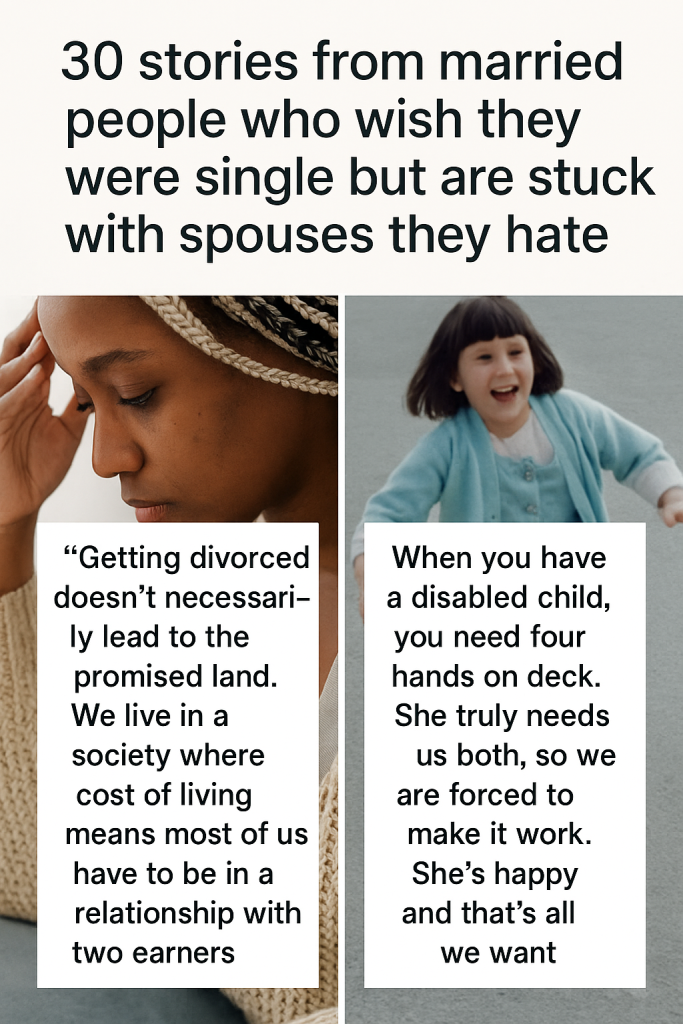In a revealing wave of social media posts, a collection of 30 candid stories from married individuals exposes a growing, often unspoken struggle: the desire to be single again, but feeling trapped with partners they deeply resent. These accounts shed light on the complex emotional and practical challenges many face within their marriages, challenging the common perception that divorce is a simple escape to happiness.
These stories, shared anonymously on platforms known for personal disclosures, range from quietly desperate to openly anguished narratives. Many of those who posted emphasize feelings of isolation, disappointment, and conflict within their relationships. What stands out is not just the expression of unhappiness but the agonizing sense of being stuck—unable or unwilling to leave due to a multitude of reasons including financial dependency, children, social stigma, or fear of the unknown.
“Getting divorced doesn’t necessarily lead to the promised freedom or happiness,” one person wrote, reflecting a common theme across the posts. Despite the hope that separation might bring relief, many report that the aftermath is fraught with legal battles, emotional exhaustion, and the daunting challenge of rebuilding a life on their own.
Financial insecurity plays a significant role in why many feel tethered to unhappy marriages. Several stories highlight concerns over shared debts, living costs, or the impact of separation on dual incomes. For parents, the complexity intensifies with worries about custody, co-parenting conflicts, and the emotional well-being of their children.
Beyond the practical barriers, these personal accounts often reveal deep emotional tolls. From constantly arguing or silent resentments to the erosion of intimacy and trust, the dissatisfaction seeps into every facet of their lives. Some describe feeling unseen or misunderstood by their spouses, while others painfully recount years of unmet expectations and growing distance.
Experts in relationship psychology note that while divorce rates remain significant, the fear of negative consequences can keep many trapped in unhappy marriages longer than they might wish. Emotional ambivalence—the simultaneous desire to leave and hope for change—creates a difficult emotional landscape that few can navigate alone.
Support networks are critical but often underutilized. Several stories mention reluctance to seek therapy or counseling, whether due to stigma or a belief that such interventions won’t work. Yet, others found some relief by confiding in friends or professional counselors, underscoring the importance of mental health support in dealing with marital distress.
The social media thread featuring these stories has ignited widespread conversation and an outpouring of empathy from readers. Many commentators have shared similar experiences, highlighting how common and yet concealed this struggle can be.
In a world where marriage is often idealized as the ultimate goal, these raw testimonies remind us of the complex realities behind closed doors. They urge a more compassionate understanding of marital unhappiness and the diverse reasons people remain in difficult relationships.
Ultimately, these stories serve as a call to address the emotional, legal, and financial obstacles that keep people trapped in unsatisfying marriages. They also spotlight the need for broader societal support systems that empower individuals to make healthy, informed decisions about their relationships—whether that means working to rebuild or courageously choosing to move on.



